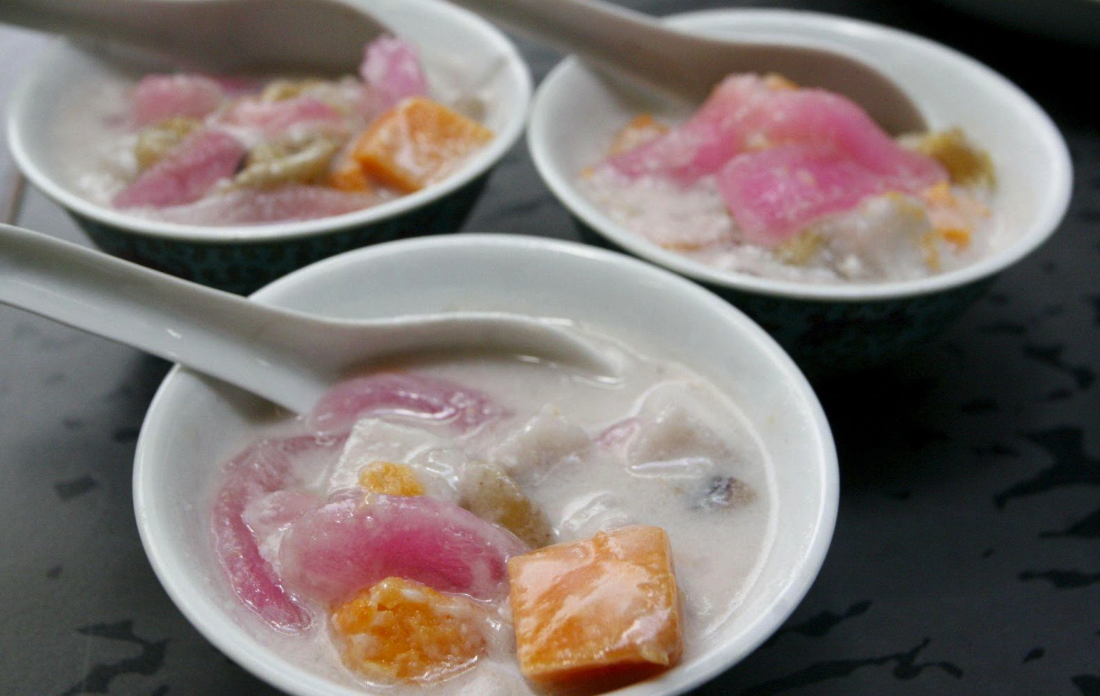Lantern Festival in Malaysia – Tossing Mandarin Oranges for Marriage Luck
The festival of 元宵Yuanxiao, also called the Lantern Festival, on the fifteenth of the first lunar calendar is the peak of the Chinese New Year, which is related to lighting lanterns in origin and spread from the imperial court to the common people in Han Dynasty. The festival is also called Lantern Festival in the northern China, when people enjoy decorated lanterns, guess riddles on the lanterns and eat 元宵Yuanxiao, glutinous rice dumplings. However, in the Southeast Asian tropical countries, the Lantern festival celebrations of the south-migrating Chinese are not really related to lanterns in a long period, only the customs of outdoor gathering of people under the moon is still similar to those in the mainland of China.
The Chinese in Malaysia mostly migrated from the south of China, who brought their hometown Chinese traditions and customs with them and then developed slightly different celebrations based on the local living habits. On the Lantern Festival, the locally born Chinese, also called Baba-Nyonya communities, have developed a custom of cooking a festival sweet soup, Pengat, after migration and localization. This festival sweet soup is full of coconut aroma, filled with diced and steamed sweet potatoes and taro in assortment, white kidney beans and banana, and even the glutinous rice cake, which is an essential food in Chinese New Year, is sliced and steamed to be soft and then added to the soup.
The 南洋年糕Nanyang Niangao, Malaysian Glutinous Rice Cake, is made with glutinous rice pulp poured onto the banana leaves which are steamed hot till they give off aroma. The cake that bites with light banana leave smell, together with the sweet coconut soup, makes unique Lantern festival food for Chinese in Malaysia. This festival food is not only enjoyed by families and also sent to neighbors as a gift, but also is used to sacrifice ancestors. Of course, there are also some families refusing to use this as sacrifice for God because “番薯”,Fanshu (meaning the sweet potatoes), has a derogative meaning of “lack of smartness and wit” when used to tease people. Therefore, such sweet soup with sweet potatoes as the main ingredients can be used to sacrifice ancestors but not served in worship to God to avoid the curse of the descendants becoming as stupid as “番薯”.

The Lantern Festival sweet soup Pengat served by Malaysian Nyonya Kitchen (provided by Penang City Eye)
Chinese in Malaysia also have the custom of tossing mandarin oranges for good luck in marriage, which is a “special custom” for Chinese and originated from Penang Island where Chinese immigrants preponderate. According to the accounts of the earlier British colonial officials, the Chinese in Penang Island had the customs of tossing objects along rivers or sea coast to pray for better luck on the Lantern festival since the beginning of the nineteenth century.
The scholar who migrated south, Tong Nianzu, wrote a poem “元宵詩”, a poem for Lantern Festival, which was incorporated to the 1900 edition of Duke of Hai Record Volume One, The Chronicles of Penang Island (《海國公餘錄•卷一•檳榔嶼記事本末》) by Zhang Yunan (張煜南,1851-1911), as follows:
Pick up a rock and quietly toss it onto the river, wishing to marry a good husband and everything goes well;
In Sarong and red wooden slippers, sing and dance in the moonlight in Lantern Festival.
This poem depicts the scene that the scholar of the nineteenth century witnessed on the Lantern Festival when he travelled to Penang Island, where the Nyonya residents walked outside in Sarong and red wooden slippers, singing and dancing in the moon, and also people who tossed small rocks into the water praying for good marriage. The modern celebrity of Penang Island, Physician Wu Lien-teh (伍連德,1879-1960) described in his record of childhood memory of Penang Lantern festival with more details of how people tossed the small rocks to make them float on the surface of water and judge if their wishes would come true or not by the number of times the rocks skip. In the middle of the twentieth century, though people still toss little rocks when they pray for good luck, but it’s assumed that the jingles in Hokkien of “Toss Mandarin oranges to marry good husbands” started to spread among people. It might have come from the jingles of “偷挽蔥,嫁好翁”Tou Wan Cong, Jia Hao Weng,meaning“tie leeks secretly to pray for marriage to a good husband” as a Hokkien Lantern Festival custom, but since the vowel of “蔥”Cong, is very close to that of “柑”Gan so they sound similar, “蔥” was gradually replaced by “柑” verbally. Such rhyme replacement in folk dialects, combined with folk customs of tossing objects for better luck that existed among different communities in the South Sea, led to the jingle of “拋柑嫁好翁”, Toss mandarin oranges for a good husband.

Tossing mandarin oranges at the Gurney Drive, Penang Island, the climax of Lantern Festival celebration (Photographer: Liang Huiyu)
In the ninetieth of the twentieth century, the Penang Island government promoted the local tourism economy by campaigning the tourism events with local elements, where the tossing mandarin oranges on Lantern Festival became the peak of the festival celebrations. With the promotion by the government and wide coverage in media, the activity of “tossing mandarin orange for a better marriage” that originated from the jingles of the Penang residents has become a “traditional custom” Lantern festival that spread widely across Malaysia.
All articles/videos are prohibited from reproducing without the permission of the copyright holder.




Welcome to leave a message:
Please Sign In/Sign Up as a member and leave a message